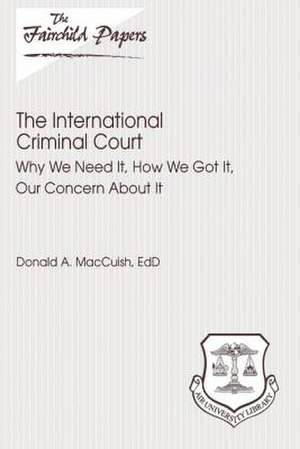The International Criminal Court
Autor Edd Donald a. Maccuish Contribuţii de Air University Press, Air University Pressen Limba Engleză Paperback
Preț: 126.34 lei
Nou
Puncte Express: 190
Preț estimativ în valută:
24.18€ • 25.15$ • 19.96£
24.18€ • 25.15$ • 19.96£
Carte disponibilă
Livrare economică 22 martie-05 aprilie
Preluare comenzi: 021 569.72.76
Specificații
ISBN-13: 9781479370245
ISBN-10: 147937024X
Pagini: 120
Dimensiuni: 152 x 229 x 6 mm
Greutate: 0.17 kg
Editura: CREATESPACE
ISBN-10: 147937024X
Pagini: 120
Dimensiuni: 152 x 229 x 6 mm
Greutate: 0.17 kg
Editura: CREATESPACE
